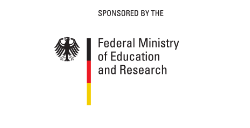
The Natural History of Sound Localization in Mammals
Our concepts of sound localization in the vertebrate brain are widely based on the general assumption that both, the ability to detect and localize air-borne sounds and the underlying neuronal processes, are homologous in archosaurs (and birds) and mammals.
Yet, studies repeatedly report conflicting results on the neuronal circuits and mechanisms as well as the coding strategies between avian and mammalian model systems. I will argue that mammalian and avian phylogeny of spatial hearing is characterized by a convergent evolution of hearing air-borne sounds rather than by homology.
In particular, the different evolutionary origins of tympanic ears and the different availability of binaural cues in early mammals and archosaurs imposed distinct constraints on the respective binaural processing mechanisms and triggered distinct adaptations in the central auditory pathways.






